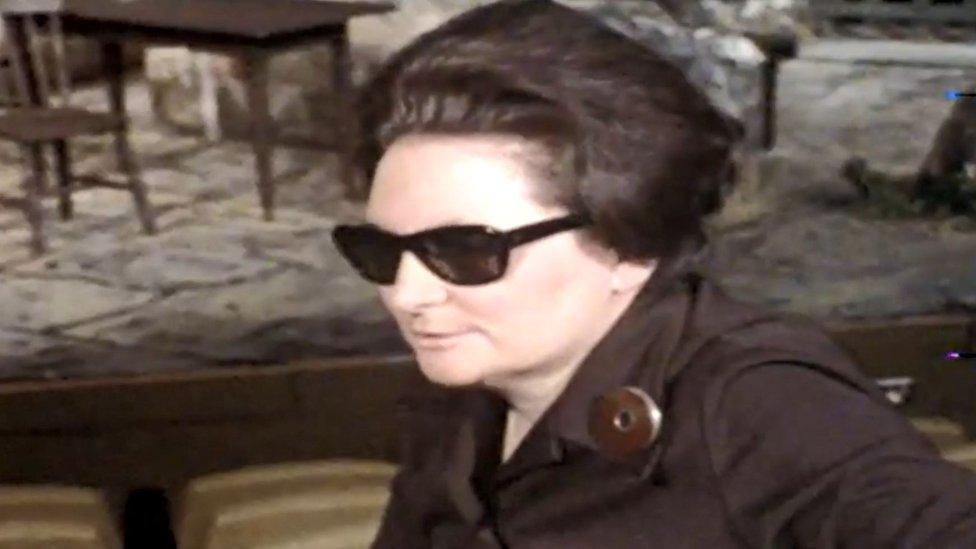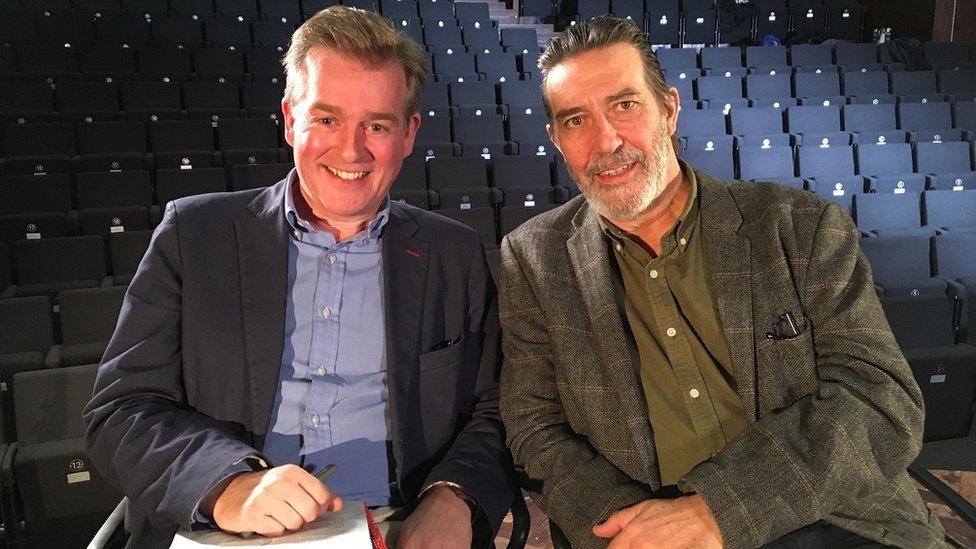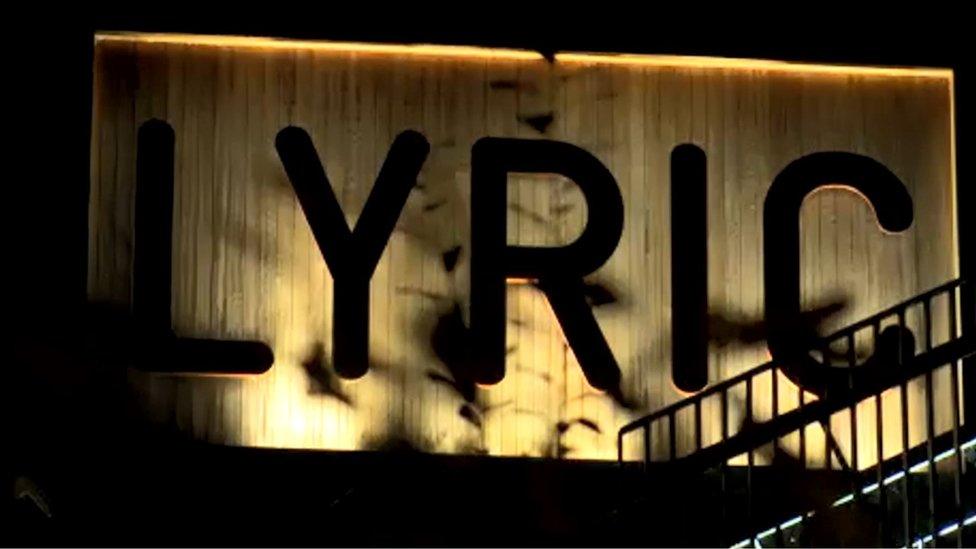Lyric Theatre: Looking back on 50 years of drama
- Published
'The audience thought the shooting was part of the play'
The Lyric Theatre has seen a few things in its 50 years on the banks of the Lagan in Belfast.
It began as a new arts space that allowed its founder, Mary O'Malley, to take productions out of her attic and onto a much bigger stage.
A stage where some of Northern Ireland's best-known acting and writing talents cut their teeth - Liam Neeson, Ciarán Hinds, Marie Jones, Stella McCusker and Conleth Hill, to a name a few.
In five decades, it has endured the political and violent strife of the Troubles, financial peril and disrepair before its reconstruction, and rebirth, seven years ago.
It is a remarkable history outlined in a one-off BBC Northern Ireland documentary presented by Mark Carruthers, a former chairman of the theatre, that looks behind the curtain at the Lyric.
Nowadays, Northern Ireland's only full-time professional producing theatre is a modern arts space befitting its recent refurbishment.
But is beginnings are far more modest - and began with a Christmas show, produced for a small group of friends.
The original Lyric Players Theatre was the brainchild of Mary O'Malley, a woman from Cork who moved to Belfast after marrying local psychiatrist Dr Pearse O'Malley.

Lyric founder Mary O'Malley started by putting on performances at her house
He asked to her to stage a Christmas show in 1951, an event that was such a success that more productions followed.
The idea for a theatre was born.
It began at the O'Malley's home before being moved to a bigger property, where Mary created a Poet's Theatre in the attic.
By the 1960s, the Lyric had outgrown its modest surroundings leading Mary to raise the funds to build a brand new theatre.
It opened on 26 October 1968, at a time when Northern Ireland was just about to tumble helplessly into the Troubles.

Ciarán Hinds, right, told the BBC's Mark Carruthers: "Good times come and go, but you've just got to keep working it, keep pushing it"
The conflict was to have an enduring influence on the Lyric, creatively and financially.
In an archive interview, Mary O'Malley outlined how a peaceful day could lead to a bumper audience while violence resulted in empty seats.
"On the Monday that internment was introduced we had 18 people in the audience and 24 on the stage," she added.
"One member of the cast didn't make it, so a member of the audience sat on the front steps and read the lines."
Gunfire off-stage
The violence came to be increasingly depicted onstage too - John Boyd's controversial The Flats was considered the theatre's first Troubles play in 1971 and paved the way for Patrick Galvin's hit satire We Do It For Love in 1975.
Despite the conflict, it's said the Lyric only closed once, during the Ulster Workers' Council Strike in 1974.

An £18m investment in 2011 helped the theatre focus on high-quality productions
Adrian Dunbar, one of the famous faces to develop at the Lyric, recalled performing Graham Reid's play The Hidden Curriculum in 1982.
"While we were on stage, you could hear the report of rifles hitting the back wall, because there was a fire fight happening on the Ormeau Road. The audience thought it was part of the play."
Despite some notable creative successes, the Lyric's fortunes waned in the 1990s - a high turnover of creative directors allied to the boom in independent theatre companies made it a challenging time.
The original building, meanwhile, was no longer fit for purpose.
An £18m rebuild led to the Lyric's rebirth in 2011, with a focus on high-quality theatre productions and the development of fresh local talent.
"You only stay relevant through new work - it's new work and productions and new ideas that keep the theatre alive," Dunbar told the BBC Northern Ireland documentary.
"To me, it's a very thrilling time right here right now with the theatre," said Ciarán Hinds.
"Because good times come and go, but you've just got to keep working it, keep pushing it, keep reaching out and looking for more."
The Lyric at 50 will be shown on BBC Two on Thursday 20 December at 22:00 GMT and will then be available on the BBC iPlayer.